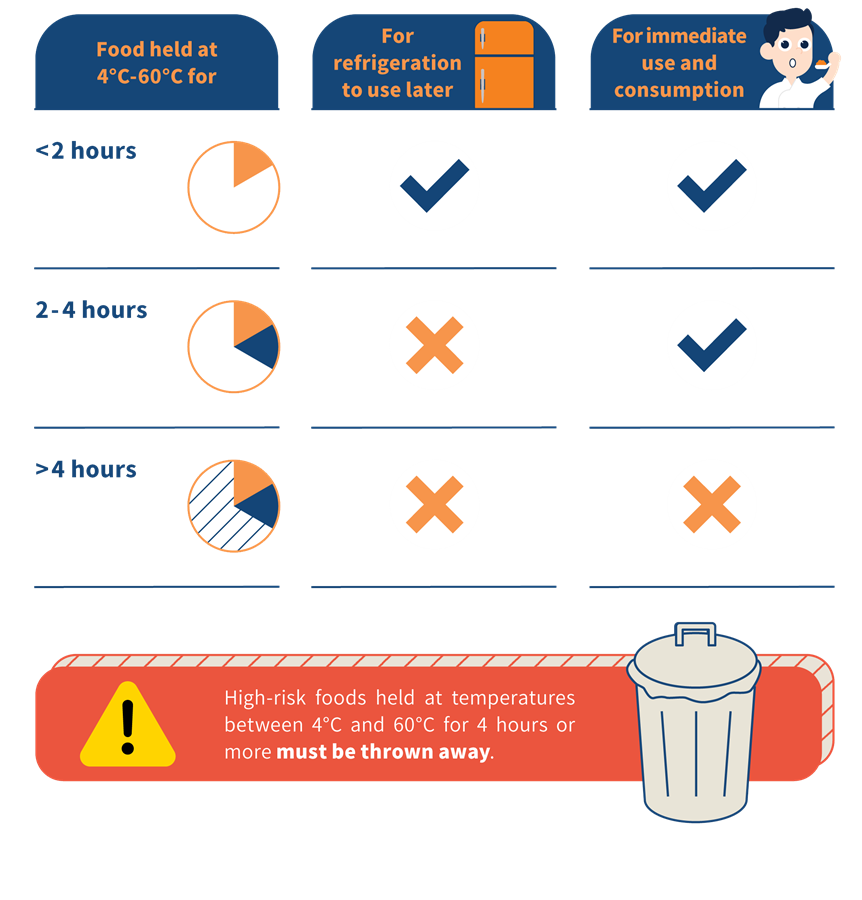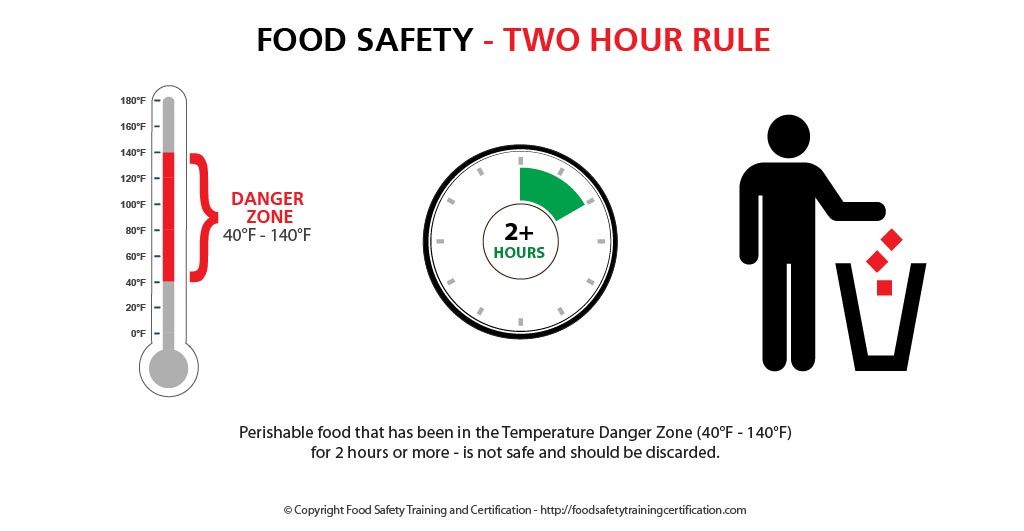
6 Day Tim Ferriss One Minute Workout for Burn Fat fast Fitness and Workout ABS Tutorial
2 Hour/4 Hour Rule Explained. How long freshly potentially hazardous foods can be safely held at temperatures in the danger zone (between 5 and 60 degrees Celcius)

The 4 hour 2 hour rule for food safety! foodsafety foodhygiene foodsafetythailand
The 2 Hour/ 4 Hour Rule tells you how long freshly potentially hazardous foods*, foods like cooked meat and foods containing meat, dairy products, prepared fruits and vegetables, cooked rice and pasta, and cooked or processed foods containing eggs, can be safely held at temperatures in the danger zone; that is between 5° C and 60° C.

2 hour Victoria Peat
The potential risk of food poisoning is why it is essential to understand the 2-hour / 4-hour rule. Put simply the rule is: Under 2 hours = Good to use or you can refrigerate at 5°C or less. 2 to 4 hours = This timeframe means the food is okay to use. Over 4 hours = Throw your food away immediately. When thinking about how long your food has.

Temperature Danger Zone and 2hour / 4hour rule
Why do we need to follow the 2hr/4hr Cooling Rule? Let's think about the Temperature Danger Zone. All temperatures between 600C - 50C. Food at 600C is safe. Most bacteria are not comfortable there. Food at 50C is safe. Most bacteria are not comfortable there.

The 2hour / 4hour rule explained ICEOTEMP
The time food can be safely held between 5°C and 60°C is commonly referred to as the '2-hour/4-hour rule' and is applied as follows: less than 2 hours, the food can be used, put back in the refrigerator (below 5°C) for later use, or kept hot above 60°C

The 2 Hour 4 Hour Rule Use of Time as a Control for Potentially Hazardous Foods Catapty
2-hour/4-hour rule An alternative method of satisfying the temperature control requirements specified in the Food Standards Code. The principal concepts of the 2-hour/4-hour rule are that when potentially hazardous ready-to-eat food has been kept between 5°C and 60°C for:

Food Service Safety Forms Chefs Resources Catering food, Food temperatures, Temperature chart
These strategies are based on the Food Standards Code, and with it, the alternative method for temperature control, also known as the "2-hour / 4-hour rule". This rule suggests that in order to lower the risks of food poisoning, food should be safely held between the "temperature danger zone" (5°C and 60°C).

Leftover Food Safety Tips
2-Hour/4-Hour Rule for Leaving Food Unrefrigerated (Photo : Pexels/Kindel Media) Everything that would typically be stored in the refrigerator is considered to be a perishable food item. This includes meat, poultry, fish, eggs, dairy products, cut vegetables and fruit, and cooked foods. According to the Washington Post, the two-hour rule.

ارمي الأكل فوراً .. ..،، 2hr/4hr Rule ،.. food_safty medical nutrition تغذية حفظ_الطعام
The 2 Hour/ 4 Hour Rule tells you how long freshly potentially hazardous foods*, foods like cooked meat and foods containing meat, dairy products, prepared fruits and vegetables, cooked rice and pasta, and cooked or processed foods containing eggs, can be safely held at temperatures in the danger zone; that is between 5° C and 60° C.

Where Are Product and Equipment Temperatures Recorded
Using the 2-hour/4-hour rule correctly. Businesses using the 2-hour/4-hour rule must meet certain requirements in the Food Standards Code and be able to demonstrate compliance to an authorised officer. They must ensure the requirements are followed for potentially hazardous food (PHF) and ingredients during receival, storage and preparation.

The 4hr. Rule Cincinnati, Ohio InsideHook
The 2-hour/4-hour rule is a good way to make sure potentially hazardous food is safe even if it's been out of refrigeration. The rule has been scientifically checked and is based on how quickly microorganisms grow in food at temperatures between 5°C and 60°C. How it works.

The radioactive sources The radioactive sources A and B of half lives of 2hr and 4hr
The 2-hour/4-hour rule is a good way to make sure potentially hazardous food is safe even if it's been out of refrigeration. The rule has been scientifically checked and is based on how quickly microorganisms grow in food at temperatures between 5°C and 60°C. 2-hour / 4-hour rule
平面 Illustrations, RoyaltyFree Vector Graphics & Clip Art iStock
The 2 hour/4 hour rule can be used to tell how long potentially hazardous foods can be safely held at temperatures in the danger zone. By applying certain ti.

The Sub 4 Hour Marathon Essential Guide + Training Plan Marathon training plan, Marathon
The 2 Hour/ 4 Hour Rule tells you how long high risk foods which are ready-to-eat like cooked meat and foods containing meat, dairy products, preparedfruits.

2. [10 points] Determine the 4hr unit hydrograph using the following data for a watershed
The 2 Hour / 4 Hour Rule is summarised below: for a total time of 2 hours or more but less be followed where potentially hazardous food cannot be stored under temperature control but only for a limited time. for a total time of 4 hours or greater, food must be thrown out and not used. during delivery, preparation and transportation.

The 2 Hour/4 Hour Rule Poster
Temperature control is very important to prevent harmful bacteria from growing in food. Food businesses should minimize the time that food spends in the Temp.